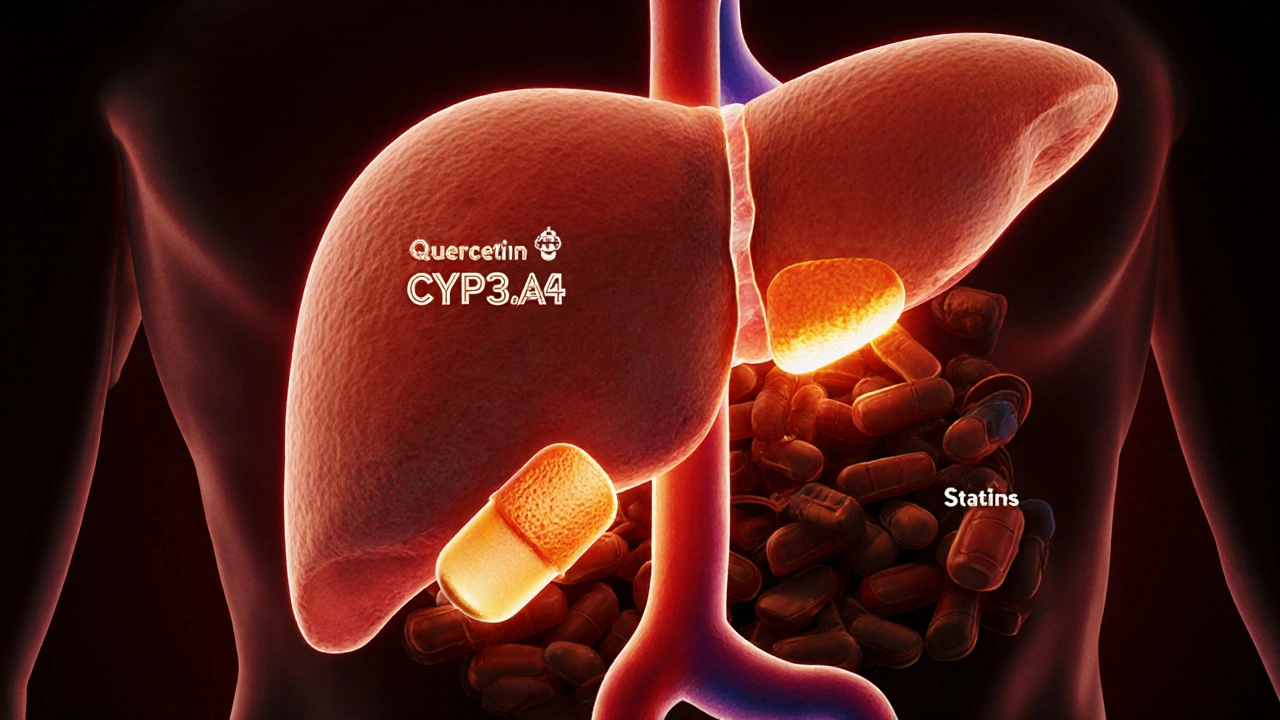
Quercetin and Medications: How Supplement Use Can Alter Drug Levels
Quercetin supplements can block liver enzymes that break down medications, leading to dangerous drug buildup. Learn which meds are at risk and how to stay safe.
When you take quercetin, a natural flavonoid found in apples, onions, and capers, often used as a supplement for inflammation and allergies. It's not just a plant compound—it's a powerful player in how your body handles medications. Many people think because it’s natural, it’s safe to mix with anything. That’s not true. Quercetin can change how your liver and intestines process drugs, leading to either dangerous side effects or meds that don’t work at all.
It doesn’t just affect one type of drug. CYP3A4, a key enzyme in the liver that breaks down over half of all prescription drugs is strongly inhibited by quercetin. That means if you’re on statins, blood pressure meds, or even some antidepressants, quercetin can cause those drugs to build up in your system. On the flip side, it can also block P-glycoprotein, a transporter that pushes drugs out of cells, affecting how well medications like digoxin or certain cancer drugs get absorbed. And if you’re taking blood thinners like warfarin, quercetin might increase your bleeding risk by interfering with platelet function. Even common OTC drugs like ibuprofen or naproxen can become riskier when mixed with it.
It’s not just about what you take—it’s about who you are. People with liver issues, older adults, or those on multiple meds are at higher risk. You won’t feel it right away. No burning sensation, no rash. Just a sudden spike in dizziness, unexplained bruising, or a med that suddenly stops working. That’s how quiet these interactions are. The FDA doesn’t require supplement labels to warn about drug interactions, so you’re often left guessing. And while some studies show quercetin helps with allergies or exercise recovery, none of them track how it behaves when stacked with your daily pills.
That’s why the posts here matter. You’ll find real-world examples: how quercetin can mess with the same enzymes that affect lithium levels, why it’s a hidden risk when you’re on antiplatelets like clopidogrel, and how it might interfere with antibiotics you’re taking for an infection. These aren’t theoretical warnings—they’re based on what’s already happening in clinics and ERs. You’ll learn how to spot the signs, what to ask your pharmacist, and which supplements are safer alternatives if you’re on chronic meds. No fluff. No hype. Just what you need to stay safe.

Quercetin supplements can block liver enzymes that break down medications, leading to dangerous drug buildup. Learn which meds are at risk and how to stay safe.